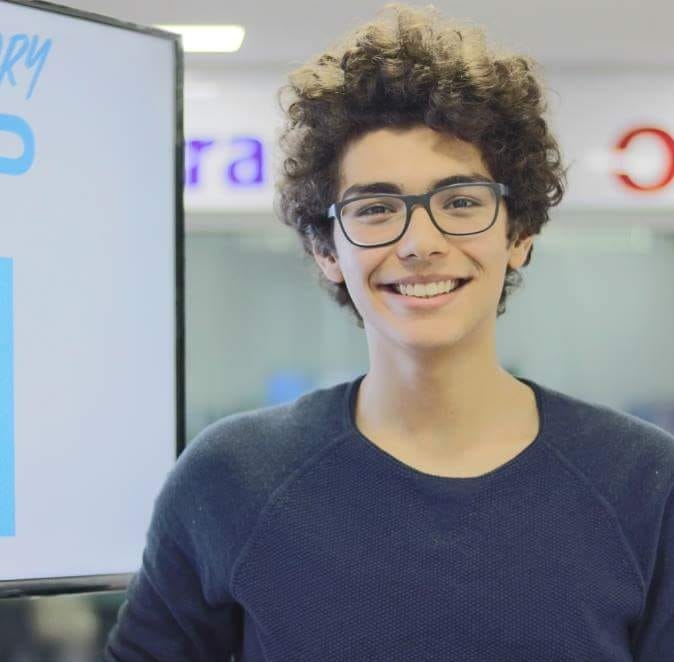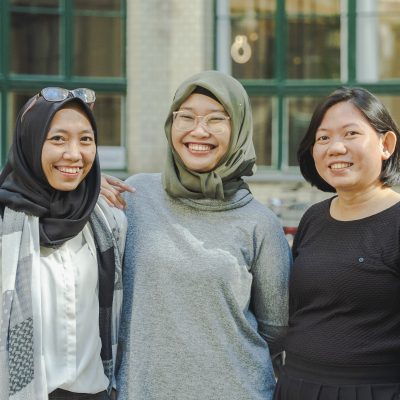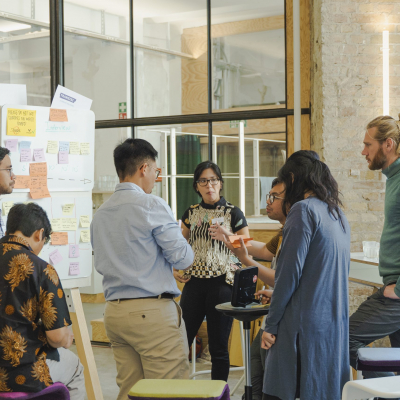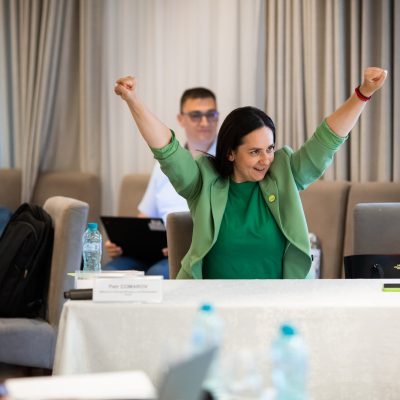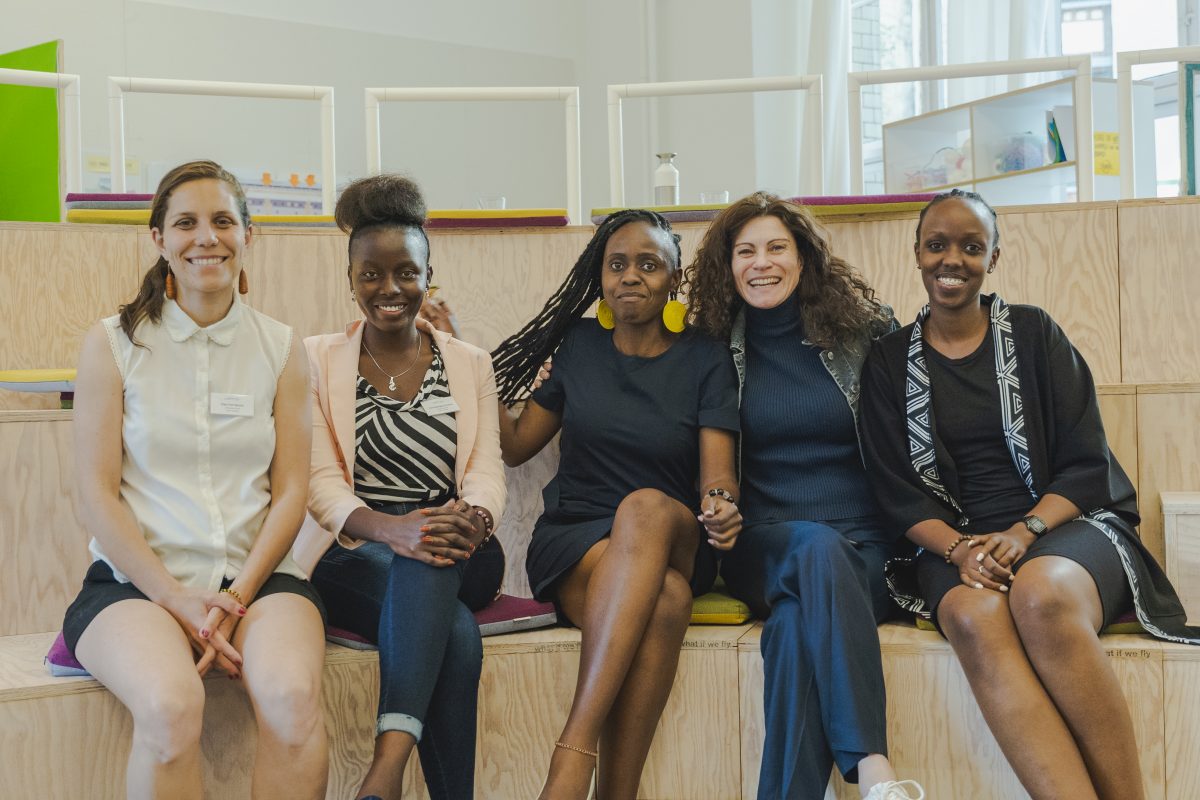
Becoming Nala is breaking down barriers for women entrepreneurs in rural Rwanda
An African role model for gender equity and entrepreneurship
At a glance, Rwanda seems to possess all the ingredients to pioneer a fast-growing gender-equal entrepreneurial ecosystem. The country is experiencing rapid economic growth and is ranked as the second easiest place to do business in Africa by the World Bank. With more than 61 percent of the country’s parliamentary seats being occupied by women, compared to only 19 percent of seats in the United States House of Representatives or 32 percent in the German Bundestag, Rwandan politics is often cited as a model of gender inclusiveness.
On paper, women’s rights in the land of a thousand hills seem to flourish and represent a standard that the world should strive for. But in the private life sphere, it is a completely different story. Imagine being an influential member of parliament advocating for revolutionary policies around sexual violence or women’s access to education, then getting back home to face somewhat similar issues that stem from the same root cause: Rwandan society still adheres to patriarchal cultural understandings of what women should be doing in their homes. Even empowered women will still bear the full weight of unpaid care work such as childcare, cooking, or cleaning. This is clearly seen in this interview regarding an influential Rwandan member of parliament published in a 2014 Newcastle University thesis:
“He (her husband) wants everything to be ready by the time he wakes up, he should find everything all lined up for him, warm water in the bathroom, breakfast ready on the table, clothes ironed, shoes polished, socks on top of shoes, plus you to be ready by the time he is done if you have to go with him somewhere or use the same car.”
When a woman in a position of power feels trapped in such a situation because of the debilitating societal and cultural pressure, imagine how it feels like for a young aspiring entrepreneur in rural areas. With over 10.5 Million people living in rural areas out of a total population of 13 million, the unequal and rare opportunities for these women to become entrepreneurs and therefore become financially independent is one of the most pressing and decisive challenges for the country.
Most women in the countryside speak the local language, do not have access to digital assets, and have to carry the burden of many gender stereotypes. Moreover, they are missing local role models they can identify with.
“In a nutshell, they are disconnected from knowledge, inspiration, and resources.”
Becoming Nala: A sisterhood platform for empowering female entrepreneurs in Rwanda
Becoming Nala (previously known as SophieChan) is the first support platform for rural female entrepreneurs in Rwanda. Becoming Nala is a sisterhood for female entrepreneurs: Women empowering women in Rwanda on their path to entrepreneurship.
In Swahili and other African languages, Nala means “courageous lioness” and “successful woman”. “Becoming Nala” therefore stands for a community of women that takes care of each other and supports each other to become successful.
As Aline Uwasi, one of the co-founders of Becoming Nala says: “Let’s face it – women are still greatly outnumbered by men in many facets of our society, including business founders or in high-level executive positions. Becoming an entrepreneur needs a lot of courage, knowledge, and connections – Very often you can feel lonely on this path missing the right connections and support.”
The all-women team developed a hybrid solution with a digital matchmaking platform for capacity training (They curate the most relevant webinars, coachings, etc, that are already out there), access to funding opportunities, grants, market access, and existing incubator programs. In addition, they offer networking opportunities with other women entrepreneurs to share lessons learned and support each other. This can be done either via the online platform that is currently in development or at offline “hubs” created in collaboration with partner organizations.
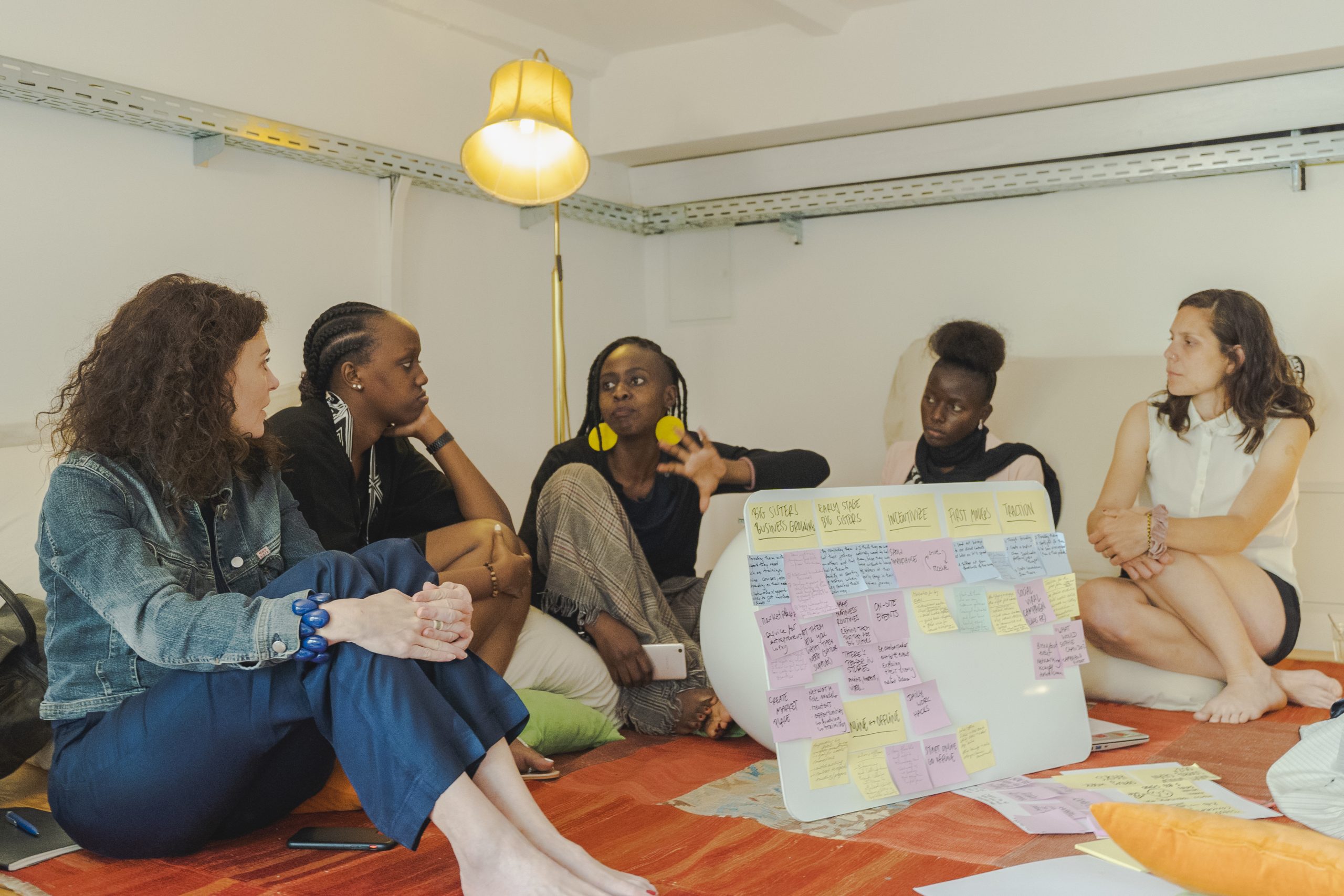
This approach is integrating emotional and professional aspects in a completely new way – online and offline – and therefore recognizes and integrates the diverse needs of women in the professional world. Becoming Nala is integrative, holistic, and innovative in its approach.
“What does Sisterhood mean to us? Sisterhood is a bond that goes beyond being family. It connects women and in its most magical moments, allows each woman in the sisterhood to thrive in ways she could never do by herself.”
In Rwanda, 83% of SMEs are owned by men, while women only represent 17% of business owners. Women actually lead numerous smaller businesses, often informal, mainly because they do not have the confidence or the resources to scale up. Because of the instilled patriarchal culture, women are rarely exposed to and encouraged for entrepreneurship.
“The GDP is mostly growing thanks to women’s efforts: when you go to farms, it is mostly women doing the hard work, sometimes while even carrying their kids!”
Aline goes on to shed light on the challenge: But they are not recognized and do not have the spotlight, so most of their efforts go under the radar. You cannot get a loan if you’re married without your husband’s approval. The men want their name on the business even if they are not really involved.
Becoming Nala strives to change this mentality and provide support for the women combating it. They are challenging the status quo thanks to the training and network building they offer, which can often start as a simple workshop and lead to a sizable impact!
Little drops of water make the mighty ocean
“When we first applied for the program (Decentralized Development Lab), Becoming Nala was just a rough idea. Our journey before the midterm workshop was really just centered around research. By the time we were in Germany, we’d done a couple of field research excursions and we were able to really come together a team.”
In one of their field visits during the research phase, the Becoming Nala team further discovered how pressing the situation is, and how simple concepts and training can fundamentally and tremendously help rural women. They visited a rural cooperative of baskets’ waivers which crafted a significant number of baskets for an order that was not fulfilled, resulting in a huge surplus of stock.
“They had to keep them after producing them because they did not know that they needed to follow a legally binding documents such as invoices or order forms to guarantee a purchase. They have impressive craft skills, but no knowledge of the business aspect of it.”

The story inspired the team because they knew that it could have been avoided with some general business knowledge that could easily be transferred.
“The way we could help them is to expose them and mentor them around common business practices, and create a solid list of references.”
User testing in the field was important as it helped them tailor their solution to the real needs of women entrepreneurs in rural areas. The women provided positive feedback, are already following up and are keen to join the community.
“Thanks to the support of the program, we were able to prototype the platform and draft the project plan, promotion, Business Model Canvas, etc…, but most importantly, we were able to engage different stakeholders and partners and were able to get in touch with a governmental institution. We were also able to get contracts, benefiting both sides where we connected local startups that connected with local creators in rural areas.”
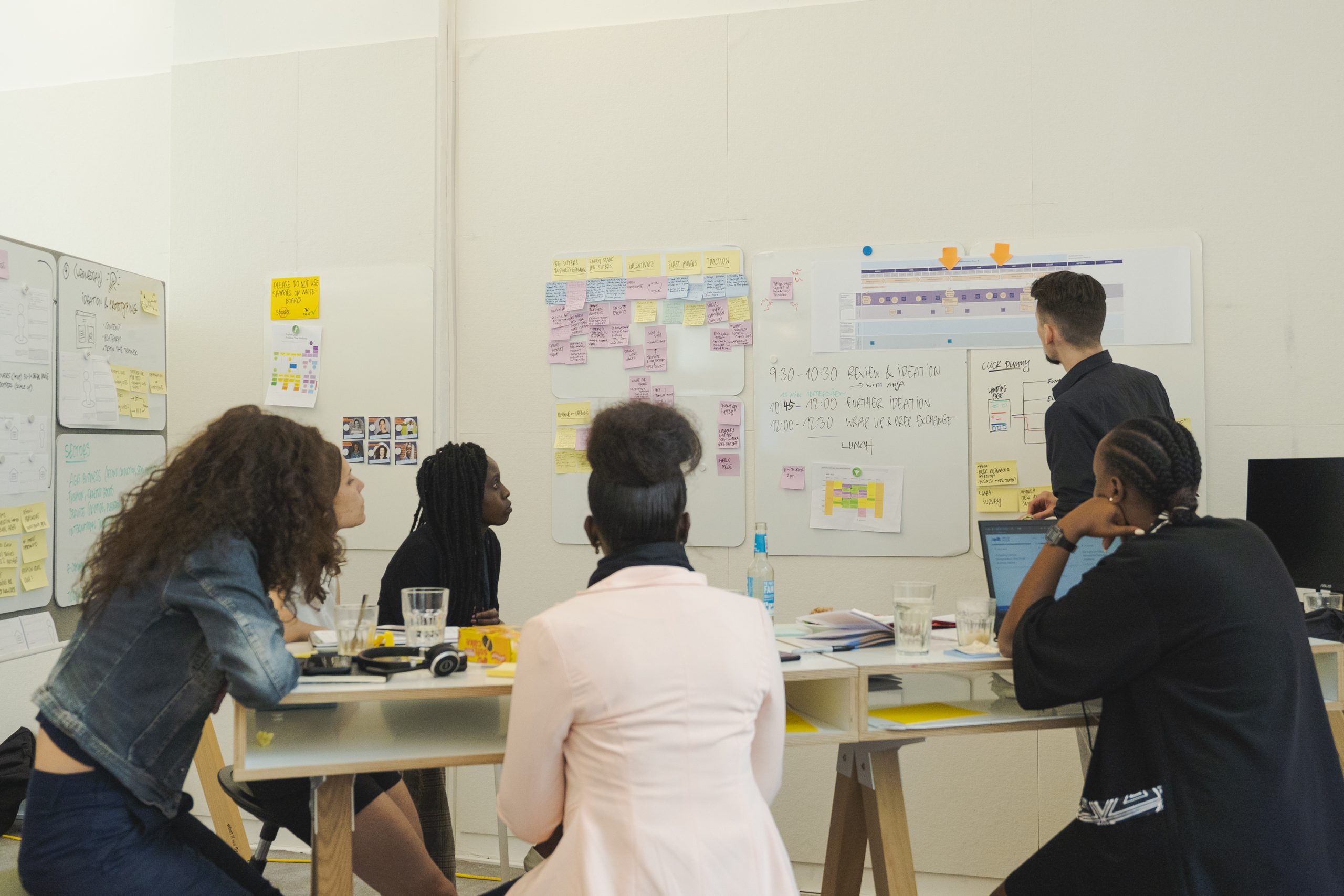
About the Decentralised Development Lab (DDLab)
DDLab (Decentralised Development Lab) is a 12-month incubation and acceleration program, offering teams from different countries coaching, training, expert exchange, and financial support to develop solutions and maximize social impact for specific challenges. The Decentralised Development Lab (DDLab) has been developed by the Deutsche Gesellschaft für Internationale Zusammenarbeit (GIZ) GmbH and commissioned by the Federal Ministry for Economic Cooperation and Development (BMZ) through the “Bund-Länder-Programm – German Government and Federal States Programme (BLP).” The project is implemented in collaboration with minds & makers GmbH and enpact.
